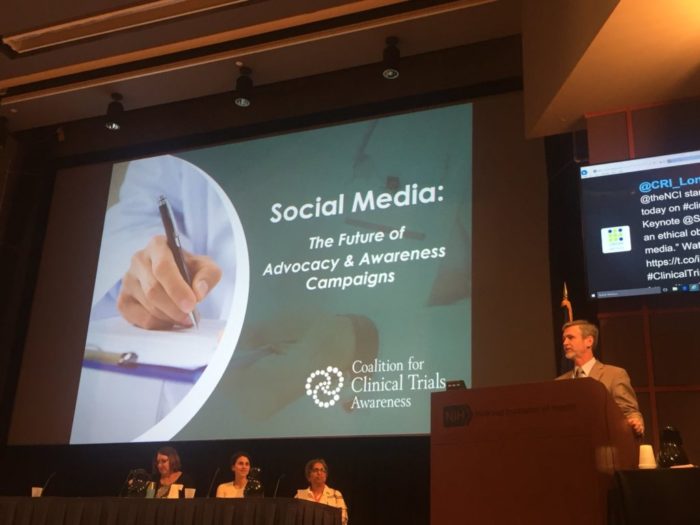What can America learn at the crossroads of social media and clinical trials? At a recent National Institutes of Health workshop, one organization had a clear answer: powerful methods for heightening clinical trials awareness.

The two-day event, held on NIH’s Bethesda, Maryland campus, invited David Charles, MD, to describe the work of the Coalition for Clinical Trials Awareness. Dr. Charles serves on the steering committee of the group, which unites about 50 patient advocacy, research and clinical trials organizations in promoting the societal benefits of clinical trials participation. The coalition envisions a wide-scale, federally supported public awareness campaign on clinical trials.
Public awareness campaigns have come a long way, Dr. Charles reminded the audience. His presentation took attendees back through Smokey the Bear posters advising Americans to prevent forest fires and basketball legend Michael Jordan’s televised plea that registered organ donors, “Share your life. Share your decision.” Today’s awareness campaigns, however, would have the benefit of an important new vehicle: social media.
In fact, when the coalition used its 2016 Clinical Trials Awareness Week to explore what a federally supported clinical trials awareness campaign would look like, social media played a central role. The coalition’s vision for a clinical trials awareness social media video, which Dr. Charles shared with attendees at the NIH event, drew tens of thousands of YouTube viewers. In 2017, the group’s Clinical Trials Awareness Week zeroed in on the issue, using its annual Twitter chat to ask: Can Digital Media Save Clinical Trials?
Social media also has changed the face of advocacy campaigns, Dr. Charles explained. He alluded to recent advocacy in Minnesota on 2018 step therapy legislation, around which patient advocates rallied until the governor signed the bill in May. Social media activity was critical to the effort.
It could also be important for furthering policies related to clinical trials, Dr. Charles noted. One such issue is the lack of newborns and senior citizens in clinical trials, a topic that took center stage this March at the coalition’s Capitol Hill policy roundtable event. The event was part of the organization’s 2018 Clinical Trials Awareness Week.
The Coalition for Clinical Trials Awareness contends that, if Americans know more about clinical trials, they are more likely to participate in one. And, as the National Institutes of Health event made clear, increased awareness and higher participation may be aided by one important tool: social media.

